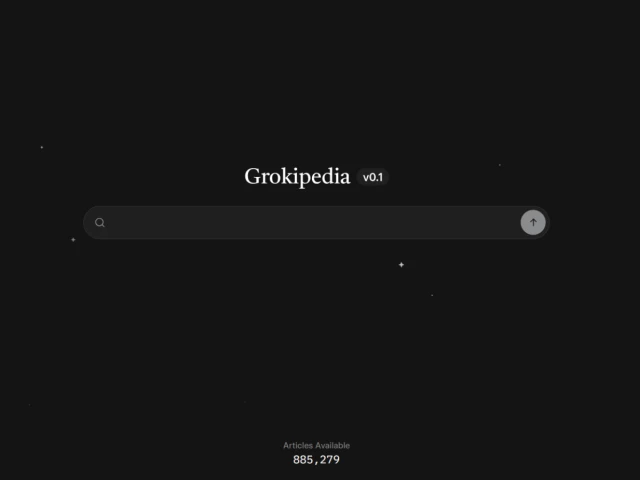Musk-backed xAI launches Grokipedia to challenge Wikipedia
Grokipedia’s content is generated by a generative-AI assistant called Grok, developed by xAI

Technology entrepreneur Elon Musk’s company xAI has introduced Grokipedia, a new AI-driven online encyclopedia intended as a direct competitor to Wikipedia, which Musk and several US conservative figures have long accused of ideological bias.
The site, labeled version 0.1, reportedly contained more than 885,000 articles by Monday evening. In contrast, the English-language Wikipedia holds over seven million entries.
Musk accompanied the launch with a promise that version 1.0 would be “10× better” than the live site, which he claimed is already “better than Wikipedia”.
He added: “We will never be perfect, but we shall nonetheless strive towards that goal”.
Grokipedia’s content is generated by a generative-AI assistant called Grok, developed by xAI. Musk said the rollout was postponed from its originally scheduled end-September launch in order to “purge out the propaganda”.
In a move that underscores his concerns regarding Wikipedia, Musk in August barred the use of Wikipedia as a “definitive source for Community Notes” on the micro-blogging platform X, citing “extremely left-biased” editorial control. The site has also come under scrutiny by Republican-aligned officials. In August, two members of the US House of Representatives launched an investigation into “organized efforts … to influence US public opinion on important and sensitive topics by manipulating Wikipedia articles”.
Established in 2001, Wikipedia is a collaborative, volunteer-edited encyclopedia funded chiefly through donations and open to editing by users worldwide.
Why it matters:
Grokipedia’s emergence marks a new front in the broader contest over information credibility, ideological framing, and AI-powered knowledge platforms. For Pakistan’s engaged internet audience, eager for diversified sources of digital information, it raises questions about authority, transparency, and the role of machine-generated content in shaping public knowledge.
What to watch:
- The difference in article quality and editorial oversight between Grokipedia and Wikipedia.
- The extent to which Grokipedia attracts contributors beyond the US or Western vantage point.
- Whether Grokipedia’s AI model introduces its own set of biases or ideological leanings.
- Reactions from global regulators around AI, information platforms, and potential “propaganda purge” claims.



















COMMENTS
Comments are moderated and generally will be posted if they are on-topic and not abusive.
For more information, please see our Comments FAQ